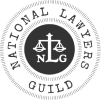
As if the federal sentencing guidelines aren’t harsh enough, the guidelines occasionally contain a “cross reference” or a “special instruction”. At sentencing in federal court, Cross References & Special Instructions create a situation where the guidelines are increased to suggest to the court the defendant should get even more time due to a special circumstance or unique situation anticipated by congress. These guidelines provisions are very frustrating to federal crime defense attorneys because the federal sentencing guidelines are so terrible on a cross references & special instructions, the additional direction can defeat our work in getting a reduced sentence.
The statute for a cross reference:
§1B1.5. Interpretation of References to Other Offense Guidelines
(a) A cross reference (an instruction to apply another offense guideline) refers to the entire offense guideline (i.e., the base offense level, specific offense characteristics, cross references, and special instructions).
(b) (1) An instruction to use the offense level from another offense guideline refers to the offense level from the entire offense guideline (i.e., the base offense level, specific offense characteristics, cross references, and special instructions), except as provided in subdivision (2) below.
(2) An instruction to use a particular subsection or table from another offense guideline refers only to the particular subsection or table referenced, and not to the entire offense guideline.
(c) If the offense level is determined by a reference to another guideline under subsection (a) or (b)(1) above, the adjustments in Chapter Three (Adjustments) also are determined in respect to the referenced offense guideline, except as otherwise expressly provided.
(d) A reference to another guideline under subsection (a) or (b)(1) above may direct that it be applied only if it results in the greater offense level. In such case, the greater offense level means the greater Chapter Two offense level, except as otherwise expressly provided.
An example where both a cross reference & special instruction are in the same statute are the sentencing guidelines for supporting a terror organization.
§2M5.3. Providing Material Support or Resources to Designated Foreign Terrorist Organizations or Specially Designated Global Terrorists, or For a Terrorist Purpose
(a) Base Offense Level: 26
(b) Specific Offense Characteristic
(1) If the offense involved the provision of (A) dangerous weapons; (B) firearms; (C) explosives; (D) funds with the intent, knowledge, or reason to believe such funds would be used to purchase any of the items described in subdivisions (A) through (C); or (E) funds or other material support or resources with the intent, knowledge, or reason to believe they are to be used to commit or assist in the commission of a violent act, increase by 2 levels.
(c) Cross References
(1) If the offense resulted in death, apply §2A1.1 (First Degree Murder) if the death was caused intentionally or knowingly, or §2A1.2 (Second Degree Murder) otherwise, if the resulting offense level is greater than that determined above.
(2) If the offense was tantamount to attempted murder, apply §2A2.1 (Assault with Intent to Commit Murder; Attempted Murder), if the resulting offense level is greater than that determined above.
(3) If the offense involved the provision of (A) a nuclear weapon, nuclear material, or nuclear byproduct material; (B) a chemical weapon; (C) a biological agent, toxin, or delivery system; or (D) a weapon of mass destruction, apply §2M6.1 (Nuclear, Biological, and Chemical Weapons, and Other Weapons of Mass Destruction), if the resulting offense level is greater than that determined above.
Commentary
…
2. Departure Provisions.—
(A) In General.—In determining the sentence within the applicable guideline range, the court may consider the degree to which the violation threatened a security interest of the United States, the volume of the funds or other material support or resources involved, the extent of planning or sophistication, and whether there were multiple occurrences. In a case in which such factors are present in an extreme form, a departure from the guidelines may be warranted. See Chapter Five, Part K (Departures).
(B) War or Armed Conflict.—In the case of a violation during time of war or armed conflict, an upward departure may be warranted.
You can see the increase in both the cross reference and the special instruction above. The cross reference can cause the judge to treat the case like a murder and the special instruction can tell the judge to grant an upward departure for the government in certain situations. However, upward departures often lead to sentencing challenges that are open to review on appeal.
If you believe your federal sentencing has a cross reference or a special instruction, make sure your lawyer knows how to anticipate the government’s sentencing memo.

















